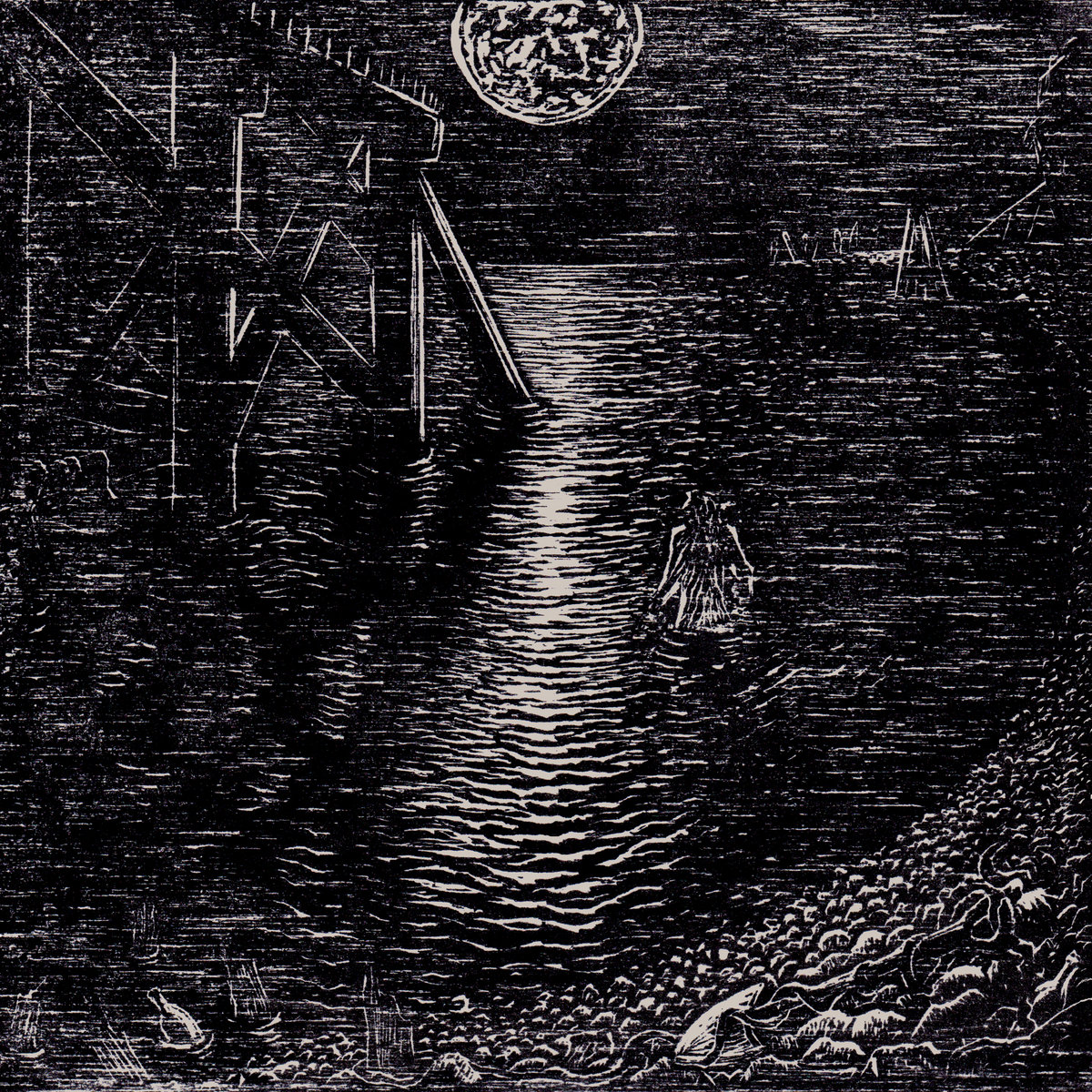MOST READ
- interview with xiexie オルタナティヴ・ロック・バンド、xiexie(シエシエ)が実現する夢物語
- Chip Wickham ──UKジャズ・シーンを支えるひとり、チップ・ウィッカムの日本独自企画盤が登場
- Natalie Beridze - Of Which One Knows | ナタリー・ベリツェ
- 『アンビエントへ、レアグルーヴからの回答』
- interview with Martin Terefe (London Brew) 『ビッチェズ・ブリュー』50周年を祝福するセッション | シャバカ・ハッチングス、ヌバイア・ガルシアら12名による白熱の再解釈
- VINYL GOES AROUND PRESSING ──国内4か所目となるアナログ・レコード・プレス工場が本格稼働、受注・生産を開始
- Loula Yorke - speak, thou vast and venerable head / Loula Yorke - Volta | ルーラ・ヨーク
- interview with Chip Wickham いかにも英国的なモダン・ジャズの労作 | サックス/フルート奏者チップ・ウィッカム、インタヴュー
- interview with salute ハウス・ミュージックはどんどん大きくなる | サルート、インタヴュー
- Kim Gordon and YoshimiO Duo ──キム・ゴードンとYoshimiOによるデュオ・ライヴが実現、山本精一も出演
- Actress - Statik | アクトレス
- Cornelius 30th Anniversary Set - @東京ガーデンシアター
- 小山田米呂
- R.I.P. Damo Suzuki 追悼:ダモ鈴木
- Black Decelerant - Reflections Vol 2: Black Decelerant | ブラック・ディセレラント
- Columns ♯7:雨降りだから(プリンスと)Pファンクでも勉強しよう
- Columns 6月のジャズ Jazz in June 2024
- Terry Riley ——テリー・ライリーの名作「In C」、誕生60年を迎え15年ぶりに演奏
- Mighty Ryeders ──レアグルーヴ史に名高いマイティ・ライダース、オリジナル7インチの発売を記念したTシャツが登場
- Adrian Sherwood presents Dub Sessions 2024 いつまでも見れると思うな、御大ホレス・アンディと偉大なるクリエイション・レベル、エイドリアン・シャーウッドが集結するダブの最強ナイト
Home > Reviews > Album Reviews > Shovel Dance Collective- The Water is the Shovel of the S…

Shovel Dance Collective
The Water is the Shovel of the Shore
Memorials of Distinction/Double Dare
ジェイムズ・ハッドフィールド 江口理恵 訳 Dec 21,2022 UP
伝統的なフォーク・ソングは、上手く演奏されると尋常ではないクオリティーの高さを発揮する。空気中の何かが変化したかのように、演奏者もオーディエンスも、その会場にいるのが自分たちだけではないことに気付くのだ。シャーリー・コリンズが、かつてインタヴューで「私が歌うと、過去の世代が自分の背面に立っているように感じる」と語ったように。
これは、現代のフォーク・アンサンブル、Shovel Dance Collectiveの音楽を特徴付ける性質のひとつである。ロンドンの9人組は、いわゆるフォーク・ソング歌手のようには見えない。まずほとんどのメンバーがまだ20代であり、ドローン、メタル、アーリー・ミュージック、そしてフリー・インプロヴィゼーションなどの異端なジャンルへの愛着を公言する。数年前の結成以来、まるで歴史修正主義者のような熱意でフォークの正典に向き合い、労働者階級、クィア、黒人、プロト・フェミニズムの物語を前面に出してきた。その切迫感が音楽にも乗り移り、生々しく、土臭く、非常に生き生きと感じられる。端的に言えば、存在感があるのだ。
2021年のクリスマスにShovel Dance CollectiveのYouTubeアカウントに投稿された動画は、まさに彼らの典型的なアプローチの仕方といえる。ヴォーカリストのマタイオ・オースティン・ディーンが、がらんとした工業用建物に独り佇み、19世紀の哀歌“The Four Loom Weaver”を歌う。労働者階級の失業と飢餓についての苦悩の物語だ。荒涼としたセットの感じが、ディーンの、首を垂れ、目を閉じてトランス状態にあるかのように切々と歌うパフォーマンスにさらにパンチを加えている。
これまでのShovel Dance Collectiveのレコーディングの多くは、洗練よりも即時性を重視している。彼らの最初のリリース、2020年の『Offcuts and Oddities』は、手持ちのレコーダーや携帯電話で収録され、しばしばハープ奏者のフィデルマ・ハンラハンのリビング・ルームで録音されているのだ。彼らが従来のスタジオ録音を行うことは想像しにくく、これまででもっとも充実したリリースとなった『The Water is the Shovel of the Shore』(水は岸辺のシャヴェルである、の意)も、勿論そうではない。
アルバムは4つの長尺の作品(シンプルにIからIVと番号付けられている)で構成され、ヴォーカルとインストゥルメンタルの演奏に、ロンドンのテムズ川とその近辺の水路などで収録された環境音がブレンドされている。マルチ・インストゥルメンタリストのダニエル・S.エヴァンスにより継ぎ合わされたこれらのメドレー/サウンドコラージュは、存分に感情に訴えてくる。
そこかしこに水が在る。激しく流れ、足元を跳ね上げ、天上から滴り落ちる。たくさんの声が、溺れた恋人や海で遭難した船員、捕鯨船団や、海軍の遠征の話を語り、亡霊のように霧の中から浮かび上がる。しかし同時に、観光客がカモメに餌をやる音、艤装の際の軋む音、そして聖職者が毎年行う川への祝福の音なども聞こえてくる。過去が現在と共存している。歌と、歌に込められた物語は、街そのものから切り離せないものとなる。
このアルバムは、エヴァンス、ディーンと同じくヴォーカルのニック・グラナータが、ロンドン南東部のかつては水車で埋め尽くされていた地帯であるエルヴァーソン・ロードDLR駅地下を走るトンネルで録音したセッションに端を発する。航海にまつわるテーマの“Lowlands”や“The Cruel Grave”といった曲ではディーンとグラナータの声が幽霊のように空間に轟く。
他のメンバーたち(彼らのことをショヴェラーズと呼んでもOK?)も水にまつわるテーマを取り上げ、ヴァイオリン、ハンマー・ダルシマー(訳注:イギリスの伝統音楽で多用されるピアノの原型の打弦楽器)、そして私のお気に入りであるバスハーモニカなどの楽器で、バラッドやジグやシーシャンティ(船乗りたちの労働歌の一種)に貢献している。多種多様な録音の忠実度が、hi-fi/lo-fiがブレンドされたcaroline(キャロライン)の自身の名を冠したアルバムを思わせる、ある種の面白いコントラストを生み出している。実際、「The Rolling Waves」の美しいヴァージョンを演奏しているヴァイオリニストのオリヴァー・ハミルトンとロー・ホイッスル奏者のアレックス・マッケンジーは、両方のグループに共通のメンバーだ。
アルバムに付随するエッセイでは、テムズ川の象徴性と一般的な水について深く掘り下げている。「土地と人々の支配に欠かせない水は、土地の文化とは一線を画した、植民地化、奴隷制度、人種差別、資本、商品や人々の移動の過程で形成された独自の文化を持っている。」という認識は、選曲や演奏のスピリットにも反映される。それは決して騒々しいものではないが、ブリティッシュ・フォークと聞いて多くの人が想像するような気取った田園風のものでもない。
複数の民族の血を引くこの集団のメンバーと同様に、音楽は特定の国や地域に限定されておらず、イングランド、スコットランド、アイルランドにガイアナの歌がある。アルバムはガイアナ人の母親を持つディーンが歌う「Ova Canje Water」で幕を閉じるが、この曲は旧イギリス領ギアナで逃亡した奴隷が、新しく手にした自由について思いを巡らせながら、タイトルにもなっているカンジェ川の水を振り返って見渡すと言う内容だ。
荒涼とした話になりがちなこのアルバムのなかでは、希望のある終わり方だ。特に第2部の冒頭を飾る悲痛なバラッド“In Charlestown there Dwelled a Lass ”(チャールズタウンに一人の小娘が住んでいた)がそうで、ハンラハンのハープをバックに、グラナータがアノーニのような情感豊かな震える声で、悲運のロマンスを表現している。衝撃的だ。
全員によるアンサンブルを聴けるのは、冒頭の“The Bold Fisherman”の1曲のみであるにも関わらず、このレコードにみる団結力のすごさは印象的だ。個々の声が組み合わさり、何よりも大きな物を創造する、真の意味での集団的な仕事なのである。曲の多くが断片としてしか聴こえてこないのも、生きた伝統に触れているという感覚を高めてくれる。人から人へと受け継がれるもの、時が止まっているのではなく、常に動いているもの。過去から未来へと流れる共同体のようなものを。
-
Shovel Dance Collective
The Water is the Shovel of the Shore
Memorials of Distinction / Double Dare
James Hadfield
Performed well, traditional folk songs can have an uncanny quality. Something in the air seems to shift, as players and audience alike become aware that they’re no longer the only ones in the room. As Shirley Collins once told an interviewer[1] : “When I sing, I feel past generations standing behind me.”
This is a defining quality of the music made by contemporary folk ensemble Shovel Dance Collective. The London nine-piece don’t look like your typical folkies: most of the members are still in their twenties, for starters, and they cite an affection for such heterodox genres as drone, metal, early music and free improvisation. Since forming a few years ago, they’ve been tackling the folk canon with the zeal of revisionist historians, foregrounding working-class, queer, Black and proto-feminist narratives. That sense of urgency carries over into the music itself, which can feel raw, earthy, and very much alive. Simply put, it has presence.
A video[2] posted to Shovel Dance Collective’s YouTube account on Christmas Eve in 2021 is typical their approach. Vocalist Mataio Austin Dean stands alone in a vacant industrial building and sings the 19th-century lament ‘The Four Loom Weaver’, a wrenching tale of working-class unemployment and starvation. The starkness of the setting gives added punch to what’s already an impassioned performance – which Dean delivers with his head bowed and eyes shut, as if in a trance.
Much of Shovel Dance Collective’s recorded output to date has prized immediacy over polish. Their first release, 2020’s “Offcuts and Oddities,” was captured on handheld recorders and phones; they often record in harp player Fidelma Hanrahan’s living room. It’s hard to imagine the group making a conventional studio record – and “The Water is the Shovel of the Shore,” their most substantial release to date, certainly isn’t it.
The album comprises four lengthy pieces (simply numbered ‘I’ to ‘IV’), in which vocal and instrumental performances are blended with environmental recordings captured along London’s River Thames and nearby waterways. Spliced together by multi-instrumentalist Daniel S. Evans, these medley/sound collages are richly evocative.
Water is everywhere: flowing in torrents, sloshing underfoot, dripping from the ceilings. Voices emerge like revenants stumbling out of the fog, telling stories of drowned lovers and sailors lost at sea, whaling expeditions and naval campaigns. But we also hear tourists feeding gulls, the creaking of rigging, and clergy conducting their annual blessing of the river. The past coexists with the present. The songs, and the stories they contain, become indivisible from the city itself.
The genesis of the album was a session recorded by Evans, Dean and fellow vocalist Nick Granata in a tunnel that runs under the Elverson Road DLR station in south-east London, a site once occupied by a watermill. Dean and Granata’s voices resound through the space, haunting it, as they perform nautically themed fare including ‘Lowlands’ and ‘The Cruel Grave.’
The other members (is it OK to call them “shovelers”?) pick up the aquatic theme, contributing ballads, jigs and sea shanties on instruments ranging from violin to hammered dulcimer and – my personal favourite – bass harmonica. The varying fidelity of the recordings makes for some delicious textural contrasts, redolent of the hi-fi/lo-fi blend on caroline’s self-titled album. Indeed, the groups share a couple of members – violinist Oliver Hamilton and low whistle player Alex Mckenzie – who do a beautiful version of ‘The Rolling Waves’ here.
An accompanying essay delves deeper into the symbolism of the Thames, and water in general: “Vital in the control of lands and people, water has its own culture, distinct from land cultures, formed by processes of colonisation, slavery, racialisation, movement of capital, goods, people.” This awareness informs both the choice of songs and the spirit in which they’re performed. It isn’t raucous, exactly, but nor is this the kind of genteel, bucolic stuff that most people think of when you mention British folk.
In keeping with the mixed heritage of the collective’s members, the music isn’t restricted to any one country or region. There are songs from England, Scotland, Ireland and Guyana. The album concludes with Dean – whose mother is Guyanese – singing ‘Ova Canje Water’, in which an escaped slave in what was then British Guiana looks back across the waters of the titular Canje River, contemplating his newfound freedom.
It’s a hopeful finish to an album whose tales tend to be bleaker in nature. That’s especially true of ‘In Charlestown there Dwelled a Lass’, the heartbreaking ballad that opens the second part. Accompanied by Hanrahan’s harp, Granata delivers a story of doomed romance in a quavering vocal with the emotional intensity of Anohni. It’s a stunner.
Only once – on the opening performance of ‘The Bold Fisherman’ – do we hear all of the ensemble together, yet it’s impressive how cohesive the record is. It’s a collective undertaking in the truest sense, in how the individual voices combine to create something greater than all of them. The way many of the songs are only heard as fragments heightens the sense of tapping into a living tradition: something passed on from one person to the next, in constant motion rather than fixed in time. Something communal, flowing from the past to the future.
ジェイムズ・ハッドフィールド
ALBUM REVIEWS
- Loula Yorke - speak, thou vast and venerable head/ Loula Yorke - Volta
- Actress - Statik
- Black Decelerant - Reflections Vol 2: Black Decelerant
- High Llamas - Hey Panda
- The Stalin - Fish Inn - 40th Anniversary Edition -
- KRM & KMRU - Disconnect
- Cornelius - Ethereal Essence
- Kronos Quartet & Friends Meet Sun Ra - Outer Spaceways Incorporated
- Martha Skye Murphy - Um
- Mouchoir Étanche - Le Jazz Homme
- Taylor Deupree - Sti.ll
- John Cale - POPtical Illusion
- Amen Dunes - Death Jokes
- A. G. Cook - Britpop
- James Hoff - Shadows Lifted from Invisible Hands


 DOMMUNE
DOMMUNE